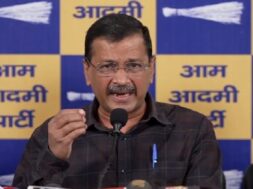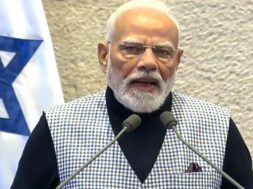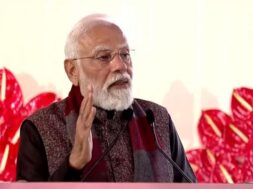
Virendra Pandit
New Delhi: He had taken a high-level delegation with even higher expectations to get billions of dollars worth of trade and aid to repair Pakistan’s crippled economy. All that he returned with, however, was a paltry 440 metric tons of Saudi rice as charity to be distributed to Pakistan’s poor to help them celebrate Eid ul-Fitr after a month-long season of Ramadan fasts.
As soon as Pakistan Prime Minister Imran Ahmed Khan Niazi returned after a “highly-successful visit” on Tuesday, with merely 19,032 bags of Saudi rice, his opponents pounced upon him saying he wasted more money on his two dozen-strong delegations than what he got in return.
This was Khan’s eighth official visit to Saudi Arabia since 2018 when he became the Pakistan PM.
Media reports said the King Salman Humanitarian Aid and Relief Centre, a Saudi aid agency, had announced to provide rice under its Zakat al Fitr project for distribution in Pakistan’s Punjab and Khyber Pakhtunkhwa provinces. It is being distributed among 114,192 recipients in nine districts of the two provinces.
The Opposition viewed this charity as the Khan visit’s actual outcome.
In a statement, Pakistan People’s Party (PPP) Chairman Bilawal Bhutto-Zardari said Khan could get nothing except rice bags from the Kingdom in the form of Fitr and Zakat.
“The price of rice bags he got in charity is comparatively lesser than the expenses incurred on the tour to the Kingdom by Imran Khan along with a couple of dozen of friends and ministers,” he said.
“Imran Khan became the Prime Minister after 22 years of struggle just to get rice sacks for an atomic power country?” he asked.
Many others twitted their opposition to Pakistan getting charity from Saudi Arabia.
Interestingly, Pakistan was, until recent years, the fourth largest rice exporter. It exported nearly four million tons of rice annually, including to Saudi Arabia. But rice cultivation has suffered during the last few years. Pakistan used to meet 80 percent of Saudi demand for rice but now Riyadh imports only 10 percent of its requirements.
At present, the trade volume between the two countries, collectively, stands at USD 3.6 billion. Of this, Pakistan’s imports from Saudi Arabia are worth USD 3.2 billion, mainly petroleum products, while its exports to Riyadh are worth only USD 316.3 million, according to the Federation of Pakistan Chambers of Commerce and Industry.
Pakistan’s relations with the Saudis soured when it sided with Turkey and Malaysia in 2019 to create a non-Arab group within the 57-member Organization of Islamic Cooperation (OIC), headquartered in Saudi Arabia. The 22 Arab countries, including the UAE, have gradually distanced with Pakistan and veered towards Israel and India instead, thus further widening the gulf with Islamabad.
Even during the ongoing Hamas-Israeli conflict, which has claimed dozens of lives in a week, Turkey is trying to become the leader of a non-Arab group, thus directly threatening the Saudi leadership of the Muslim world.
That is why Imran Khan’s last week’s Saudi visit did not yield any tangible results, except some vague trade agreements. The Saudis have also not taken any major steps to implement the USD 20 billion agreements signed with Pakistan during Crown Prince Muhammad bin-Salman (MBS) to Islamabad in February 2019 when Imran Khan had himself famously driven the next Saudi King’s limousine to woo him.
Trying to keep the Saudis in good humor, Pakistan has also been making India-friendly noises, on and off, to no avail.
On the contrary, the Saudis have been turning screws on Pakistan. Recently, they prohibited Pakistanis’ entry into Arabia if they received Chinese jabs against Covid-19!
















